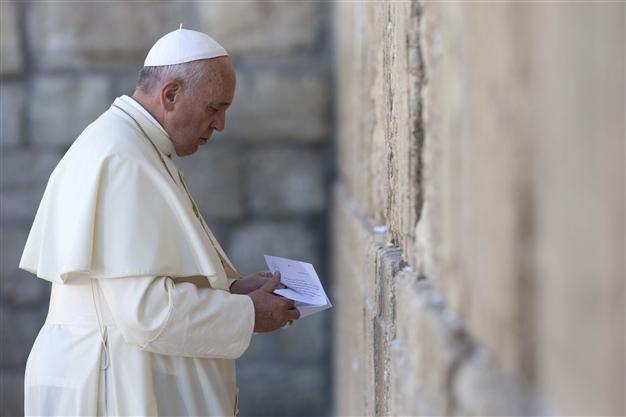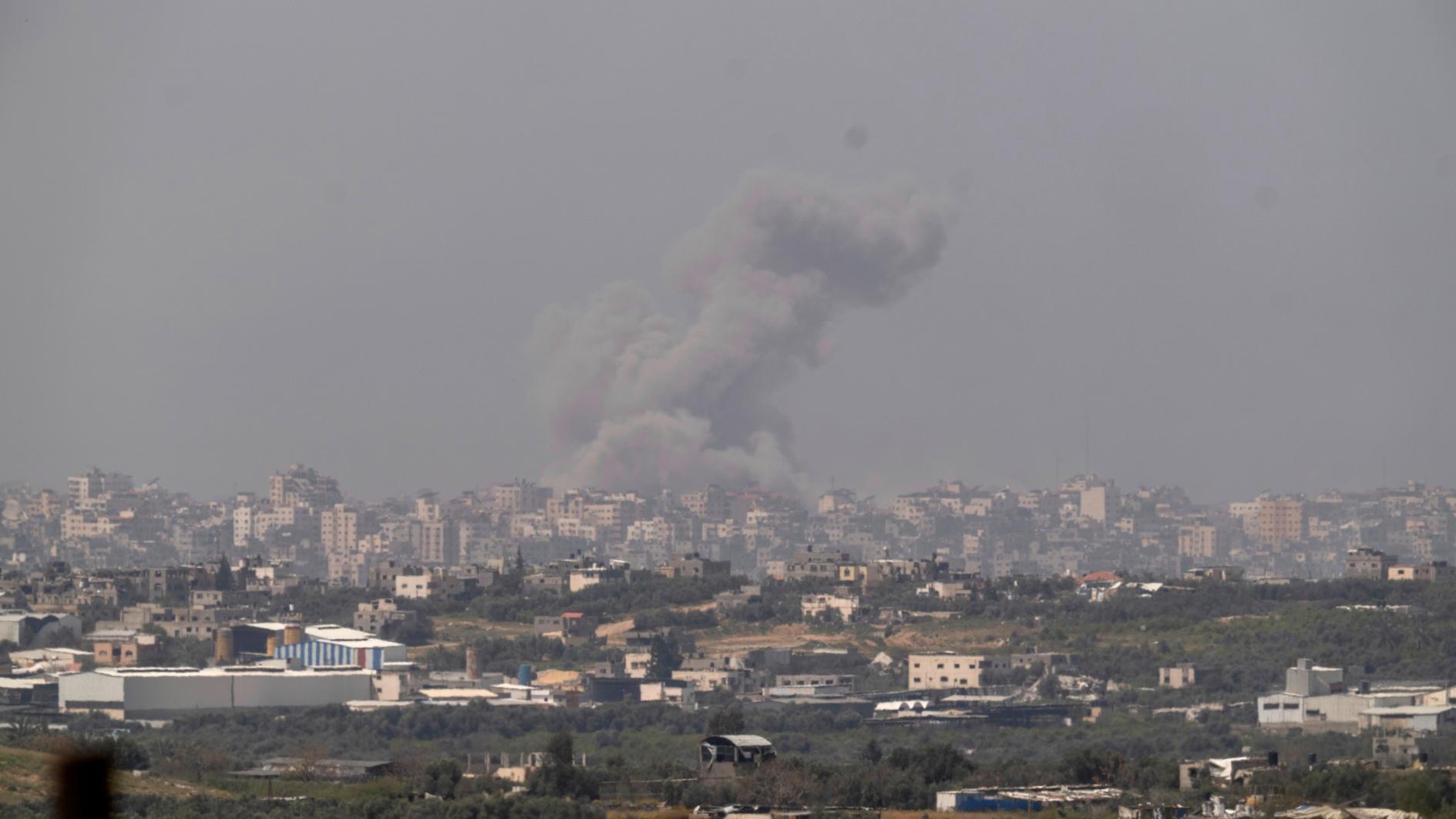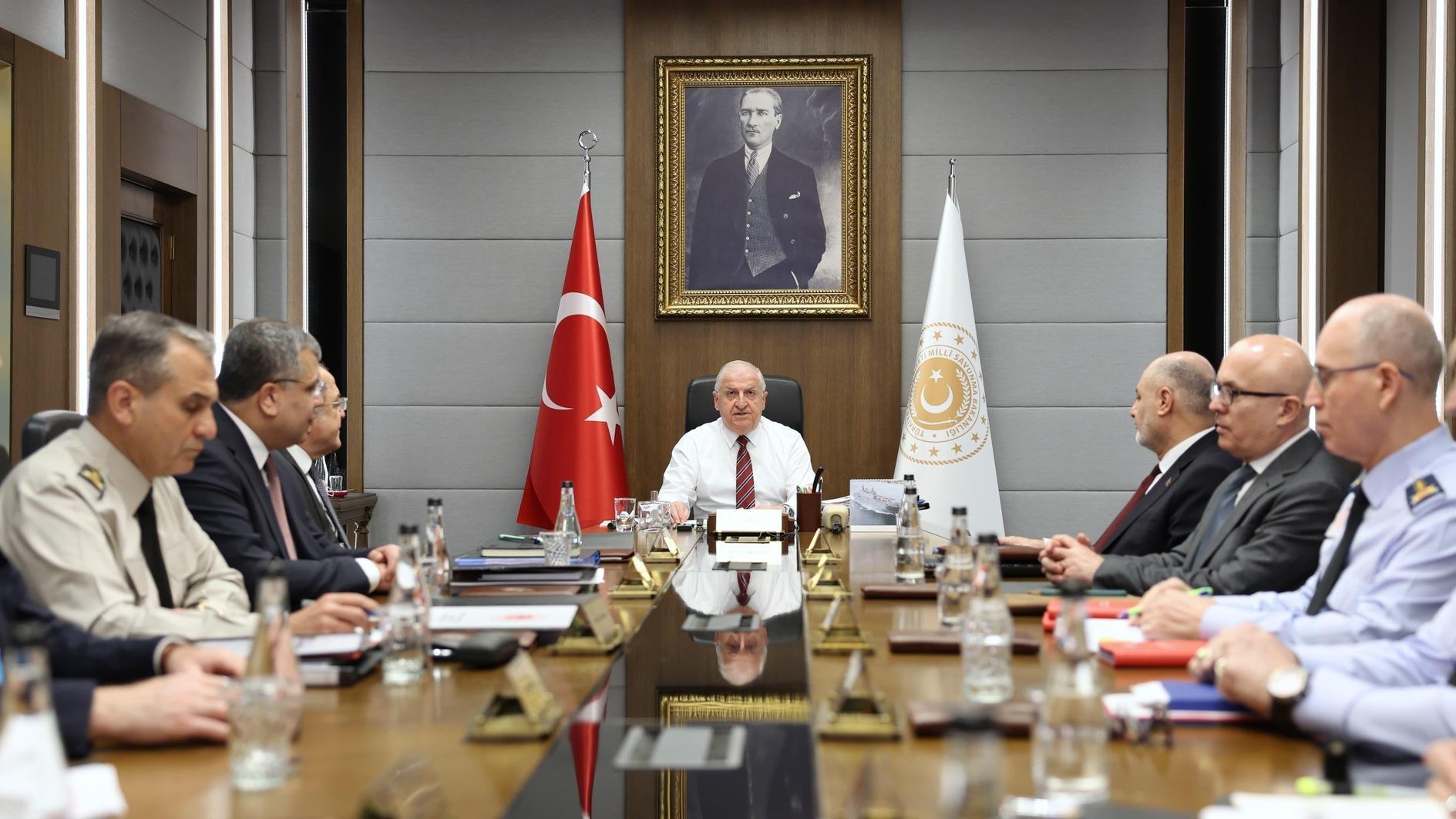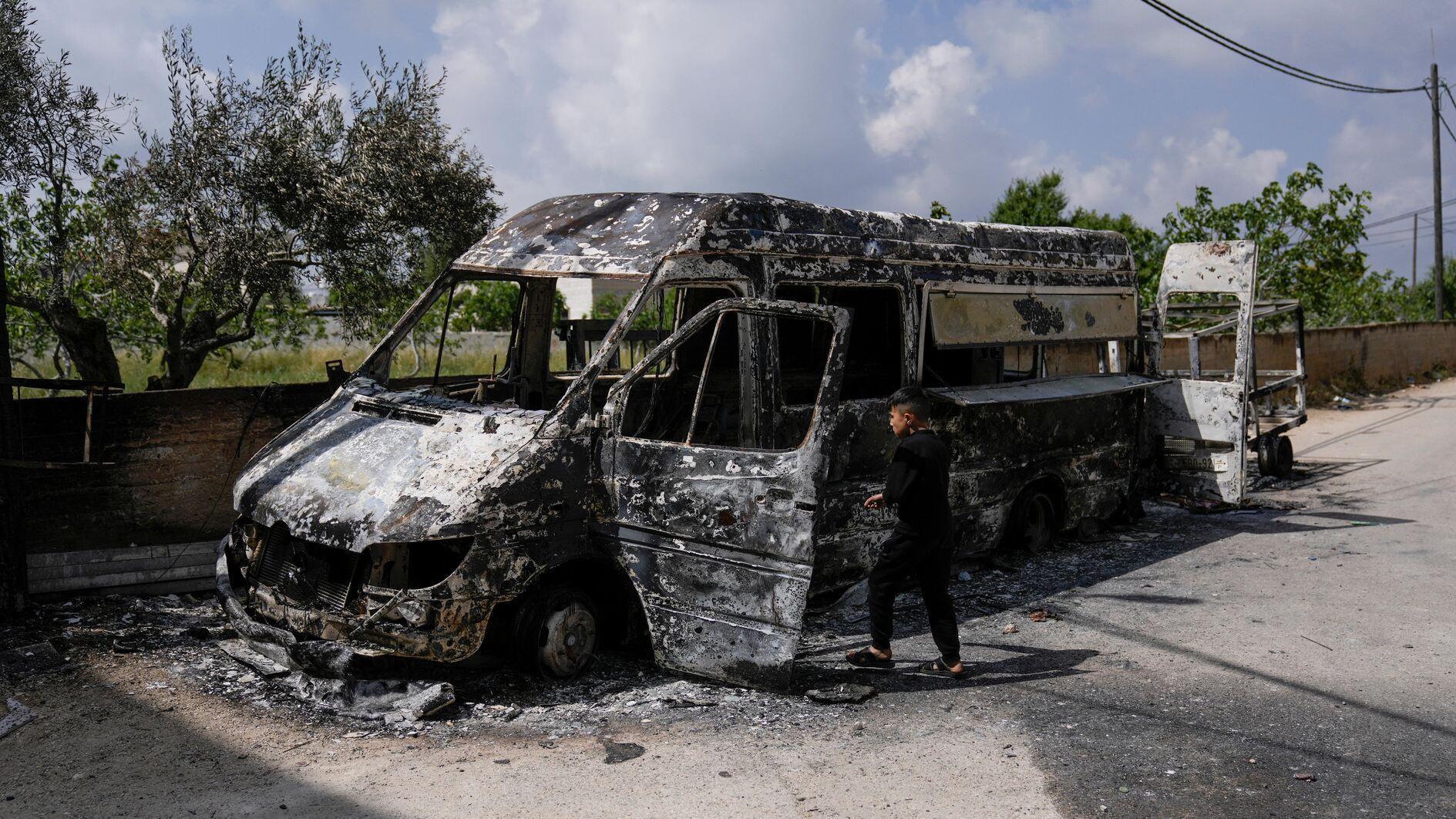Pope visits Muslim, Jewish sites on last day in Mideast
JERUSALEM - Agence France-Presse

Francis prepares to leave a note at the Western Wall, Judaism's holiest site, in Jerusalem's Old City on May 26, 2014. AFP photo
Pope Francis called for Christians, Jews and Muslims to work together for peace as he toured holy sites in Jerusalem on Monday, the final day of his Middle East pilgrimage.On an early-morning tour of key sacred places in the walled Old City, the 77-year-old pontiff first visited Al-Aqsa mosque compound, then prayed at the Western Wall which lies just beneath it.
The pontiff was rounding off a whirlwind trip which saw him issue a unique invitation to the Israeli and Palestinian presidents to pray with him at the Vatican to end their "increasingly unacceptable" conflict, as well as snatching a personal prayer moment at Israel's controversial separation barrier.
Francis had promised the three-day pilgrimage, which began on Saturday in Jordan, would steer clear of political issues.
But he ad-libbed from his scripted speech to condemn anti-Semitism, religious intolerance and those behind conflicts in the Middle East.
"May we work together for justice and peace," Francis said after being shown around the Al-Aqsa compound, which is also considered sacred by Jews because it was the site where their two famed Jerusalem temples once stood.
Entering the exquisite blue-tiled Dome of the Rock with its landmark golden cupola, used as a place of worship for women only, the pope first removed his shoes before walking down to visit the smaller, silver-domed Al-Aqsa mosque.
For Jews, the plaza is the holiest site in Judaism but they are forbidden by law to pray there, praying instead at the adjacent Western Wall, where the pope made his next stop.
Placing his right hand on the ancient stones, he bowed his head in prayer for a few minutes before placing a note in the wall, then sharing an emotional embrace with two close Jewish and Muslim friends travelling with him.
Surprise visit to Israel attack victims memorial
Pope Francis made an impromptu stop at a memorial for Israeli civilians killed in deadly militant attacks as he visited the national cemetery in Jerusalem. The unscheduled visit reportedly took place at the personal request of Israeli Prime Minister Benjamin Netanyahu, army radio reported.
Later in the morning, he visited the Yad Vashem Holocaust museum where he spoke with survivors, and he became the first pope ever to lay flowers on the grave of Theodore Herzl, the founder of modern Zionism.
At the end of the day, the will also celebrate mass at the site known as the Cenacle, or Upper Room, bringing into sharp focus a decades-long debate over prayer rites at the site where Christians believe Jesus had his Last Supper.
The site on Mount Zion, is located in a two-storey building also considered holy to Muslims and Jews, who regard it as the place where the biblical figure David was buried.
Thousands of cheering, flag-waving Christians welcomed the pope to Bethlehem on Sunday, where he celebrated mass in Manger Square.
He also made an unscheduled stop by the West Bank barrier, climbing out of his open jeep to pray, his forehead and hand resting against the wall, in a powerful show of support for Palestinians.
A message scrawled on the eight-metre (26-foot) high concrete barrier said: "Pope we need someone to speak about justice."
Israel says the barrier, which it began building in 2002, is crucial for security. Palestinians see it as a land grab aimed at stealing territory they want for a future state.
At the end of the open-air mass, the pope weighed in on the Middle East conflict, inviting Palestinian president Mahmud Abbas and his Israeli counterpart Shimon Peres to join him at the Vatican for a "heartfelt prayer" for peace.
In the wake of the latest breakdown in US-led peace talks, Francis called on leaders to show "courage" to achieve peace based on a two-state solution, saying "building peace is difficult, but living without peace is a constant torment."
A senior Palestinian official confirmed Abbas had accepted and would visit the Vatican on June 6, while Peres's spokesman said only that the invitation was welcomed.
In a boost for relations between bickering Christians, Francis on Sunday also joined Orthodox Patriarch Bartholomew I in an historic joint prayer for unity between Rome and Constantinople.
The pair met, embraced and kissed at the Church of the Holy Sepulchre inside the Old City to mark the historic meeting 50 years ago between Pope Paul VI and Patriarch Athenagoras -- the first easing of tensions between the churches since the Great Schism of the 11th century.
Francis has said the main reason for his Middle East visit was the meeting with Bartholomew I, and "to pray for peace in that land, which has suffered so much".
















